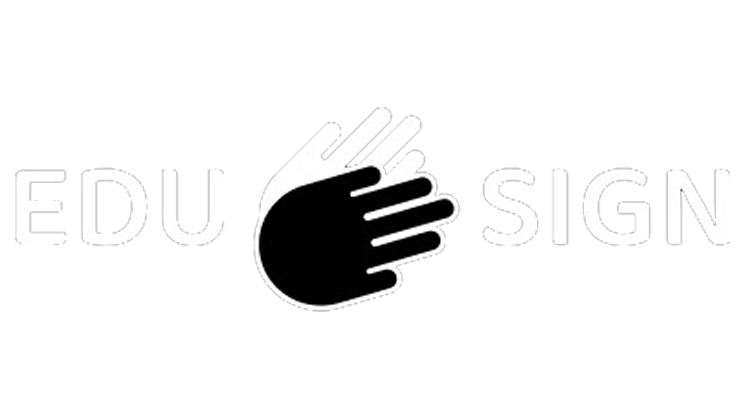Despite international efforts and legal actions to address the inequities the Deaf face in their daily lives and education, the problems they encounter continue to exist and there is still a need to raise the awareness of society about the Deaf-related issues. Due to the lack of enough number of certified and qualified sign language interpreters, the Deaf face communication problems in their lives. There is dire need to start or multiply the number of sign language interpreting undergraduate programs and certificate programs to increase the number of qualified sign language interpreters, which consequently create significant employment opportunities for the Deaf.
Moreover, due to the language barrier, the Deaf experience serious problems in their school lives and only a limited number of deaf individuals can have access to higher education, which deprives them one of the basic human rights, equal access to education, and decreases their employment opportunities. To get an ongoing large-scale public attention to the Deaf-related issues, effective means of awareness-raising need to be realized. Sweden and Finland, on the other hand, have for a half-a-century now supported research on sign languages and linguistic accessibility of their deaf people ensured their deaf citizens' access to sign language interpreting services, to education in sign language and, provided sign language interpreter (SLI) training, first in vocational, later in higher education.
Nevertheless, the education systems in SLI do vary in these two Member States and there are notable discrepancies in SLI education systems across the EU. In Turkey, on the other hand, we have made technological advances in sign language recognition that could be applicable in higher education regarding Nordic sign languages. Exchanging best practices in the field of SL research and interpreting among the three applicants with diverse profiles of expertise, - involving newcomers and more experienced organisations - would provide us important knowledge to upgrade and adapt our SLI education to modern requirements.
PARTNERS
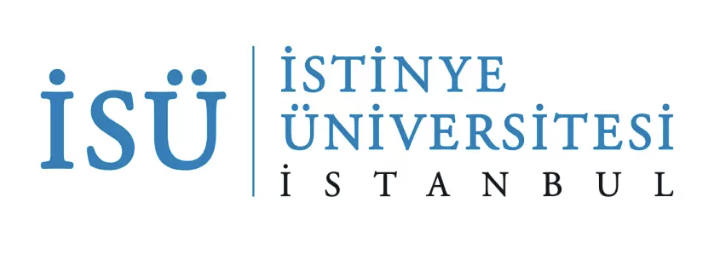
ISTINYE UNIVERSITY
Istinye University (ISU) was established in 2015 by the 21st Century Anatolian Foundation as an affiliation of the MLP Care Group with knowledge and experience of 25 years in medicine and education. The university with around 500 academicians and 12,000 students has the vision of being a science and research center and utilizing scientific findings for social welfare and offering quality and accessible services to society. Aiming for excellence in education, research, innovation, and technology development, and with a particular focus on artificial intelligence and digitalization, it engages itself in generating new information and information-based technologies to be used as solutions to local and universal problems. The university is ranked in the first 201- 300 universities in the University Impact Rankings announced by the international higher education ranking organization Times Higher Education (THE), which aims to measure the value universities add to the sustainable development of societies and social impact they create. The university has a Center for Teaching/learning Excellence which works to keep the school as a 'learning university' and help academics and students acquire latest educational skills. The Center also aims to produce innovations by carrying out research studies and utilizing research results worldwide. It tries to manage innovation by incorporating the latest technologies.

HUMAK UNIVERSITY
Humak University of Applied Sciences is a Finnish university of applied sciences, operating through a network of campuses, that offers studies in three focus areas. These are community education, cultural management, and interpreting and linguistic accessibility. Humak is the largest provider of education in its focus areas in Finland and a renowned expert in these fields in Europe. Humak’s English degree programmes include a Bachelor’s Degree Programme in Adventure and Outdoor Education and a Master’s Degree Programme in Sign Language Interpreting. Supporting the principle of lifelong learning, Humak also offers an increasing number of courses and competence modules in English as open university of applied sciences studies. In Finnish, Humak organises bachelor’s and master’s degree programmes in all its focus areas. The open university of applied sciences studies includes a wide variety of courses and competence modules to promote lifelong learning.
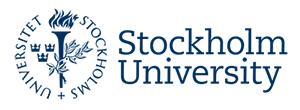
STOCKHOLM UNIVERSITY
Stockholm University (SU) is home to Sweden’s most substantial research within science and human science, as well as the home of a number of internationally prominent research environments. Research in sign language has been carried out at the Department of Linguistics since 1972. Much of the current research focuses on sign language structure, lexicography and corpora for sign language, particularly Swedish Sign Language. A related development has been the availability of systems for fine-grained, searchable annotation of videos with signing. Other research issues are language acquisition of deaf children, language assessment, language teaching, multilingualism in deaf, deaf refugees, language acquisition of hearing second language learners. There is also a BA program in sign language interpreting.
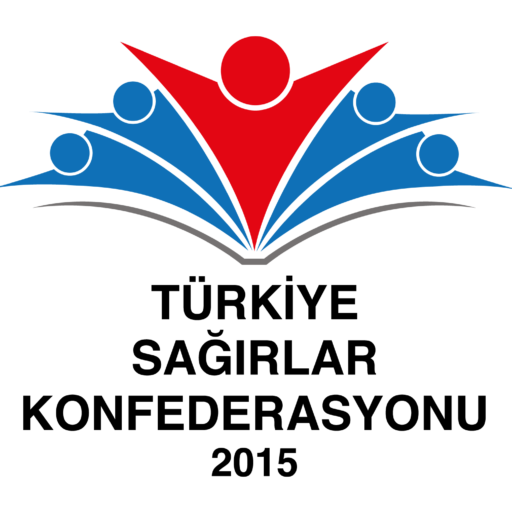
TURKISH CONFEDERATION OF THE DEAF
The purpose of the Confederation is the protection of the economic, social, cultural, occupational and similar rights and the development of such rights for the Deaf; working in coordination with federations under its roof; working about raising the awareness and accessibility; ensuring deaf individuals undertake research, and find solutions to practice their basic rights and liberties within framework of national and international laws applicable in Turkey; cooperating with relevant ministries, media and communication organizations thereby ensuring that the deaf society access information alongside their social and fundamental rights. The Confederation has participated in various international and national educational and research projects as project leader or consortium partner. The fundamental areas of expertise and work of the Confederation include: raising awareness about international rights ensured by United Nation Organization and sub-organizations for the deaf to the benefit in Turkey; the Confederation participates in international organizations or entities related to the deaf as principal or joint members and cooperates for the realization of works in line with common purposes, produces common projects; holds meetings, panels and symposiums; cooperates with all education institutions active in education of the Turkish deaf; works in increasing literacy, accessibility to media and digital environment; organizes common camps with similar purpose organizations and entities abroad for the vitalization of Deaf youth and so on.
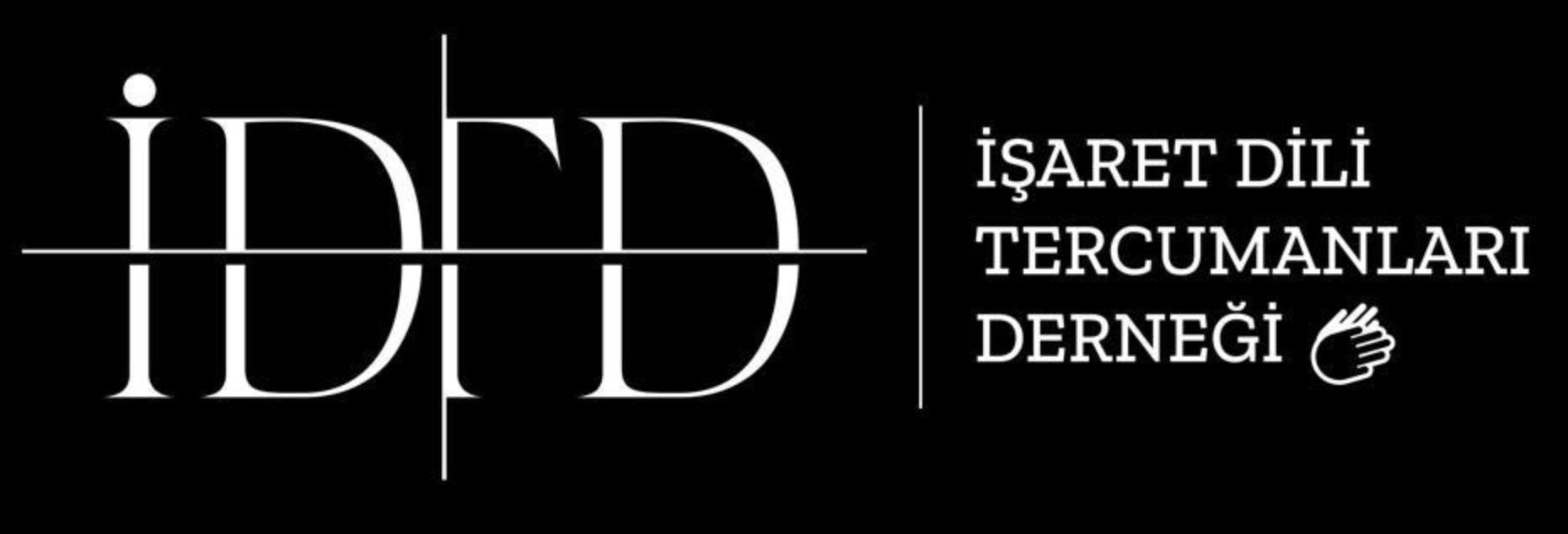
ASSOCIATION OF TURKISH SIGN LANGUAGE INTERPRETERS
Located in Ankara, the headquarter of the association IDTD (ATSLI) was established in 2010 with a current number of 174 volunteering members. The association aims to provide solutions to problems encountered by the Sign Language Interpreters in Professional and Social life and for the development and training of professionals in the field. In order to achieve these goals, it aims to conduct joint projects with the authorities and individuals through grant support for the project to be conducted successfully. It seeks to take joint actions with the members of this profession by following a national common policy related to the profession, to eliminate the inequalities that the hard of hearing have been exposed to throughout their professional and social lives, to support their career opportunities for a better professional life by providing social activities and opportunities for research to the members of the association, to protect the rights and interests of the volunteers and help them develop their skills and knowledge, and to maintain the feasibility of the members of the profession within the scope of “Ethical Principles of the Sign Language Interpreters” as stated in the article 23 of the legislation, as well as the national development of the profession within the scope of the opportunities of the association based on the activities of international institutions such as WASLI (World Association of Sign Language Interpreters) and EFSLI (European Forum of Sign Language Interpreters).
